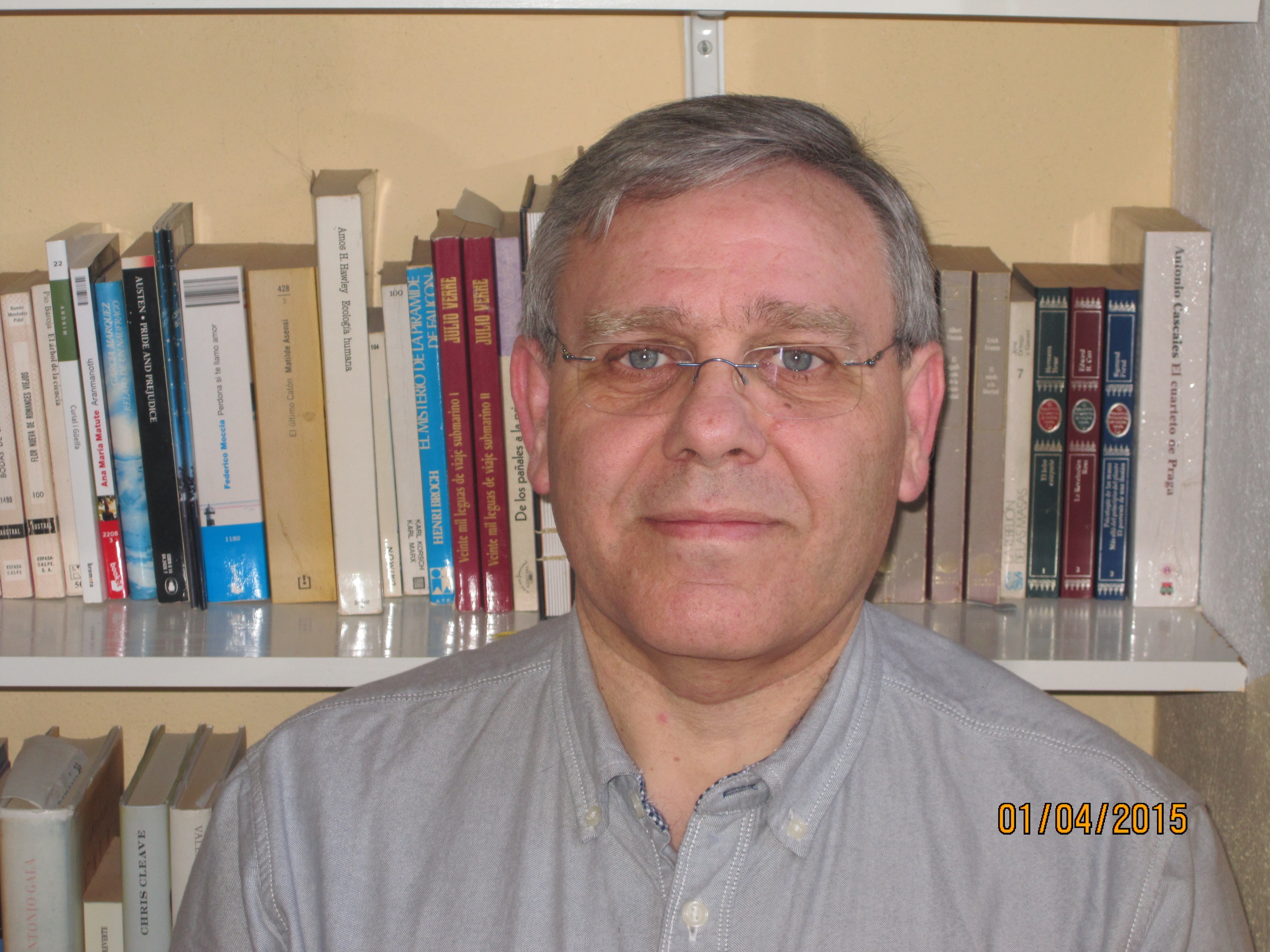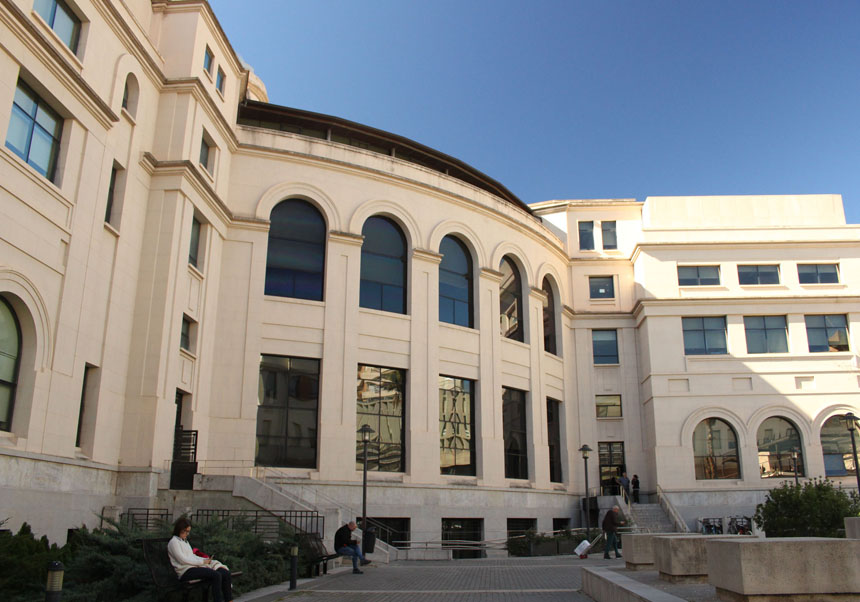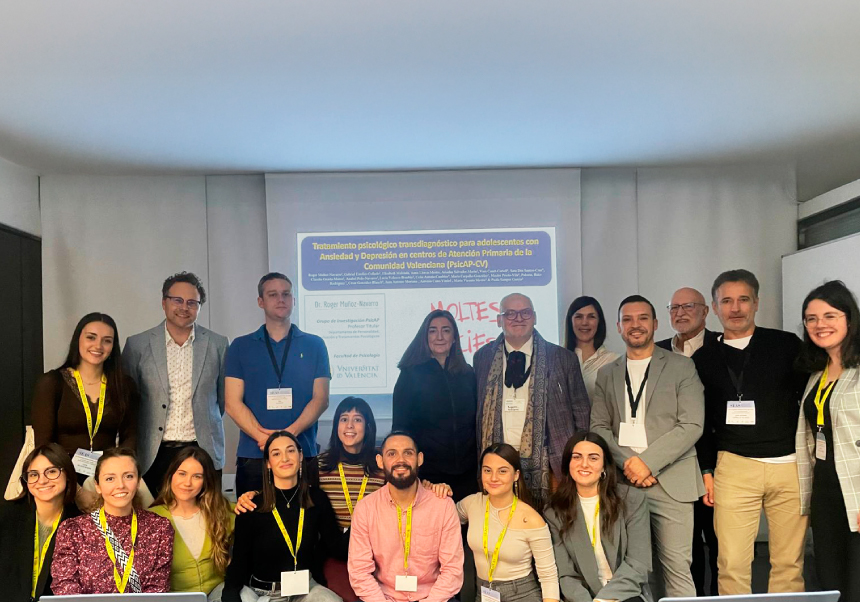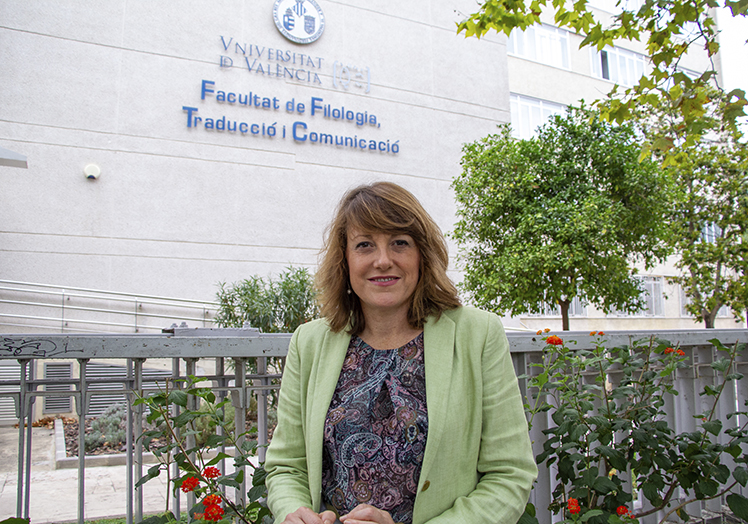A UV full university professor presents a new doctoral thesis three decades after of the first one
- September 19th, 2017

It is uncommon that a professor presents a new doctoral thesis. Nevertheless, Javier Esparcia, full university professor of Regional Geographical Analysis of the Universitat de València, will face on Wednesday the challenge of presenting a new doctoral thesis before a board. He defended his first doctoral thesis twenty-seven years ago and this time it will be at the Universidad Autónoma de Barcelona.
The first doctoral thesis, which he read in 1990, was entitled ‘Las zonas desfavorecidas en el contexto de la planificación rural. Análisis de infraestructuras equipamientos y su aplicación al Arco Ibérico Meridional’ (The less-favoured area in the context of the rural planning. Analysis of facilities, equipment and their application in the Arco Ibérico Meridional). This was the start of Javier Esparcia’s researching career. In this occasion, he deals with a similar topic but from a different disciplinary and methodological perspective, sociology and analysis of social networks. It is entitled ‘Capital Social y Desarrollo Territorial: Redes Sociales y Liderazgos en las nuevas Dinámicas Rurales en España’ (Social capital and regional development: social networks and leadership in the new rural dynamics in Spain).
According to Esparcia, ‘from my llicenciature (former Spanish undergraduate degree) I have focused on the analysis of the regional dynamics in rural areas, especially in disadvantaged spaces. In the last two decades much of those analysis have focused on the public policies as an explanatory element of these dynamics. Nevertheless, from my point of view, we were not providing enough or completely satisfactory answers to explain changes in those processes. I came to the conclusion that to give more suitable answers to the research unknowns we needed to incorporate other perspectives, and in particular the social dimension, whose explanatory power was being, in my view, underestimated. To analyse the social dimension entailed much more than reading articles. It involved applying conceptual approaches as well as solid and rigorous methodologies, and to do so, it was clear that sociology was the discipline that could help me the most, and I decided that the work, in order to be rigorous, had to take the shape of a doctoral thesis, which assured me a training process guided by specialists in the matter’.
The objective of this full university professor was not to do a research and publish it, but to learn doing a research, and to do it with good specialists. "Being willing to go through the formal controls of a doctoral thesis - says Esparcia - is something that, in good doctoral programs, is a quality assurance in training and also of the resulting research. Starting a research from the premises of another discipline, with approaches of other disciplines (such as Social Network Analysis), requires quality controls that, from my point of view, had to go through a close work to the specialists in the field.
Therefore, from the first moment I was clear that I wanted to do the whole process, and go through the controls like any doctoral student, and so it has been. For example, every year I have not only submitted a report but also made a presentation and defence of the progresses of the thesis, before a board of three professors from the Department of Sociology of the UAB. After this session the coordinator produced a report, which was sent to directors and to the doctoral student. And the following year, that report was on the table, and professors checked and followed up the extent to which their suggestions had been followed or the decisions that had been taken. Following the control steps of the doctoral program has also been a learning process. I think it has been useful for our own doctoral programmes, since I am also a member of the doctoral commission of the Institut Interuniversitari de Desarolupament Local (IIDL)’.
The central hypothesis of the new thesis of Professor Esparcia deals, on the one hand, with the expected effects on the stock of social capital of the combination of processes of socioeconomic development in which many of the less favoured areas of our society have been immersed. On the other hand, the growing coordination between actors, for example, within the LEADER local action groups. However, the Professor Esparcia's thesis has allowed him to conclude that this hypothesis is not fulfilled mainly in relation to two aspects, territorial and socio-professional. The research shows that local actors are not organized at the LEADER level, but continue to do so on traditional, municipal and, above all, regional levels. And in this context, the actors that control the intermediation between some territories and others, become power nodes. In particular, he points out, ‘public-political actors show high and sometimes worrying levels of inbreeding. However, technical and, to a lesser extent, economic actors show much greater openness and social permeability levels’.
More information:
File in: Investigació a la UV
















